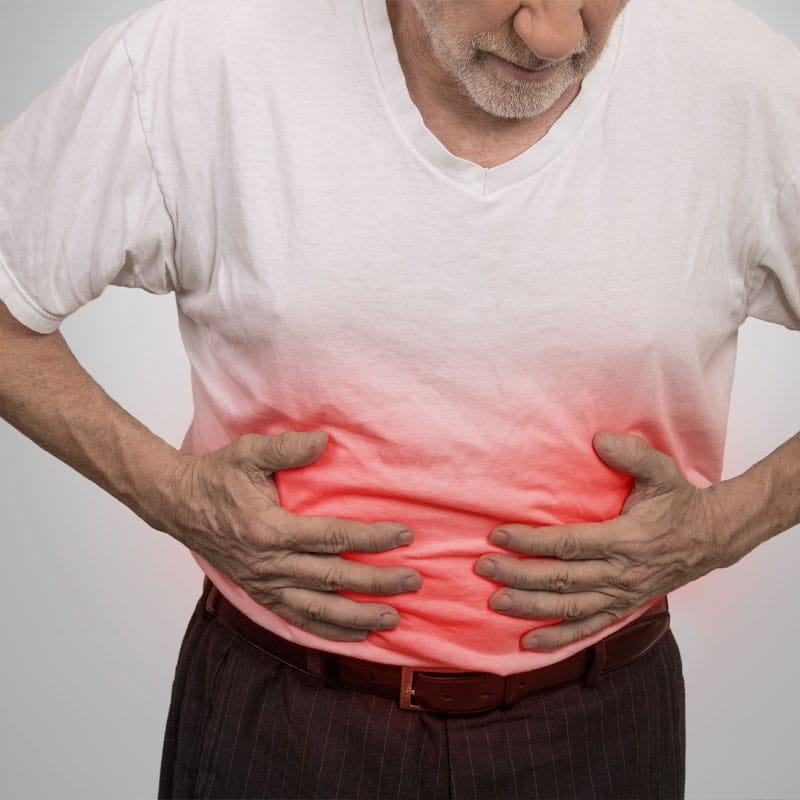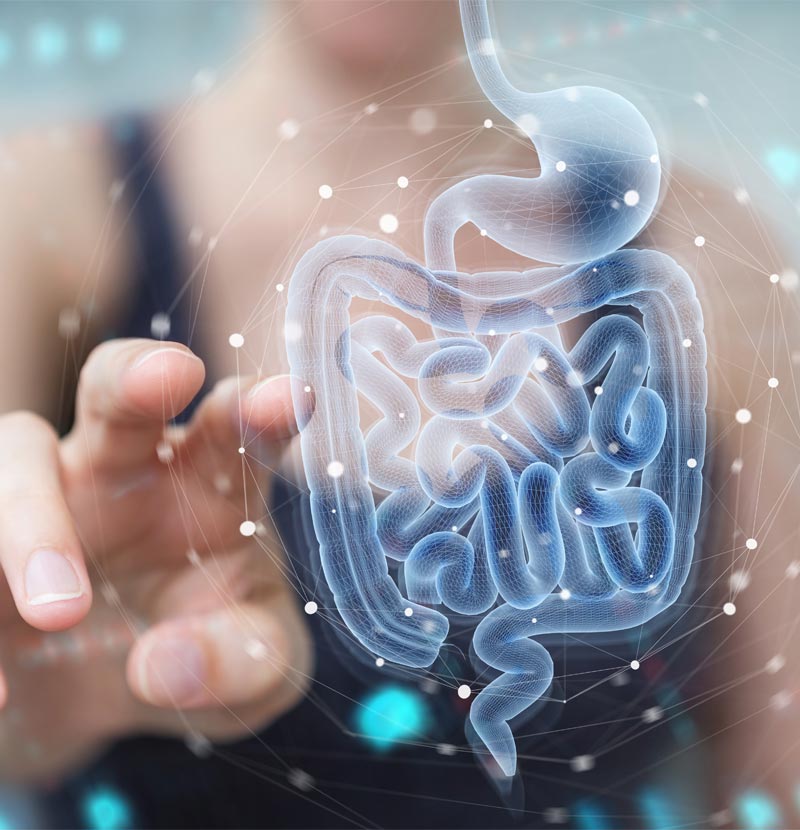Vitamin D is a fat-soluble vitamin that is created by the body when it is exposed to sunshine. A vitamin D deficiency affects every part of your body. Vitamin D is a steroid hormone that helps the body absorb calcium, resulting in strong teeth and bones. It also helps support immune health, nervous system health, brain health, lung function and cardiovascular health. Vitamin D also supports diabetes management and helps regulate insulin levels.
The National Institutes of Health reports that adults aged 19 to 70 years old should get at least 600 IU of vitamin D each day. The elderly aged 71 and older should get at least 800 IU of vitamin D each day. If you have difficulty getting enough vitamin D, there are supplements on the market to help you get the vitamin D you need.
Symptoms of Vitamin D Deficiency

An imbalanced GI tract comes with its own set of issues, including decreased metabolism, difficulty digesting foods and absorbing nutrients, and systemic inflammation. When the body is inflamed, it causes a cascading effect of issues, including bloating, upset stomach, constipation, diarrhea, food sensitivities, and food intolerances.
Typically, gut dysbiosis is caused when poor food choices are made, including high fat foods, processed meats, and tons of sugar. These are the same foods that increase the risk of obesity, metabolic syndrome, high blood pressure, type 2 diabetes, and heart disease.
In addition to gut dysbiosis, a vitamin D deficiency has been associated with an increased risk of metabolic syndrome, diabetes mellitus, cardiovascular disease, insulin resistance, and obesity. Taking a vitamin D supplement can help to reduce the risk of chronic disease and even improve weight loss efforts.
Postmenopausal women who have a vitamin D deficiency are at a greater risk for developing metabolic syndrome than those who have sufficient vitamin D levels. Low vitamin D levels are also linked to an increased risk of high triglycerides and low levels of good cholesterol. A vitamin D deficiency in postmenopausal women also increases the risk of insulin resistance and weight gain.
Risks of Vitamin D Deficiency

Several individuals can be at an increased risk of developing a vitamin D deficiency.
- Those who avoid the sun, those who have milk allergies, and those who follow a strict vegan diet
- Individuals whose kidneys function poorly may be unable to convert vitamin D into the active form.
- Individuals who have digestive disorders may be unable to absorb and process vitamin D. Disorders including celiac disease, cystic fibrosis, and Crohn’s disease are at an increased risk of a vitamin D deficiency.
- Individuals who are obese may be unable to properly utilize vitamin D. Vitamin D is extracted from your blood via fat cells. When you have a BMI higher than 30, the release of vitamin D into the blood can be altered.
How to Increase Your Vitamin D Levels
The easiest way to increase your vitamin D levels is to get sufficient sunlight. In order for your body to produce vitamin D from the sun, you must sit outdoors without sunscreen regularly. Typically, it takes about 15 minutes a day for lighter skinned people to produce the vitamin D your body needs. If you have darker skin, it can take a couple of hours to create the necessary amount of vitamin D.
There are certain things that can prevent you from getting the necessary amount of vitamin D from the sun, including wearing sunscreen, your skin color, and your geographical location. In addition to this, those with liver or kidney disease, individuals who are overweight/obese, and older people can find it difficult to get the necessary amount of vitamin D. Luckily, there are several great food sources for vitamin D, including:
- Beef liver
- Cheese
- Egg yolks
- Fatty fish, including tuna, salmon, and mackerel
- Fortified milk, juices, and cereals
- Mushrooms
For those who have a vitamin D deficiency, sun exposure and diet alone may not be enough to get the vitamin D your body needs. In this case, a vitamin D supplement should be used. There are two different vitamin D supplements D2 and D3. Although both can help correct your deficiency, vitamin D2 is typically less effective at raising your vitamin D levels in the blood.
The main difference between the two types of vitamin D is what they are derived from. Vitamin D3 is found in animal sourced food items and the type of vitamin D your body produces from sun exposure. Conversely, vitamin D2 is found in plant sourced food items and fortified foods.
How We Can Help?
Our team of integrative practitioners understands the impact a vitamin D deficiency can have on your body. We will work with you to measure your vitamin levels and create a personalized plan that will ensure you are getting the vitamins you need to maintain good health and reduce the risk of metabolic syndrome.




















